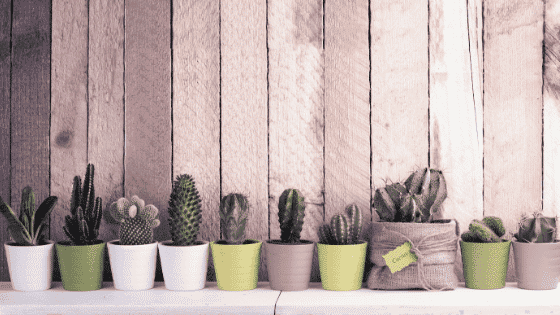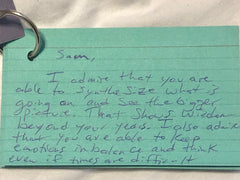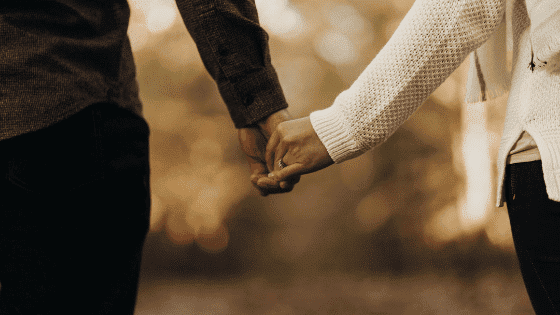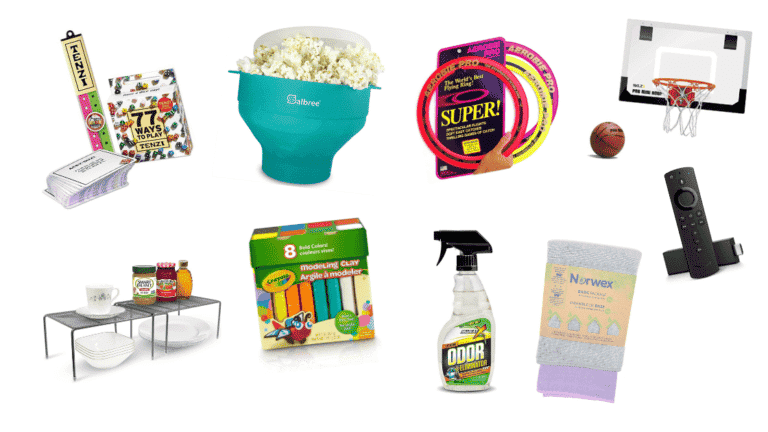Being Uncomfortable Is The Best Thing To Happen To My Family

When my family decided to take a short term mission trip to Mexico, my tween boys had no idea what to expect. My husband and I had taken mission trips before, but we’d never done it together or with our boys. The timing didn’t make sense and finances were tight. When multiple attempts to book our flights led to hours of phone calls with airlines and our bank, I wanted to cancel the whole thing. Now that our family mission trip is over, I’m so glad we took the risk and stepped out of our comfort zone because we grew individually and as a family in ways that no other experience can match. In our own words, we share what we learned when we were willing to get uncomfortable.
Who took my garbage bag?
The question was out of my mouth before I realized how much indignation was in my voice. I said it to a van full of people I’d spent every waking moment with over the previous week, and as soon as I saw the face of the 16-year-old girl in the back crack into a smile, I knew how ridiculous I sounded.
But that giant black garbage bag represented comfort–my comfort–and I wanted it back.
I was in Mexico on a mission trip with my family (husband and boys, ages 10 and 12) and 7 other people, including kids ages 2, 5 and 16. At our first meeting to help plan Vacation Bible School with the local pastor and his family, we were told it wasn’t easy getting people to attend a church service without a church building because of the sun. I thought, how bad can it really be?
It was hot. And dusty. And had absolutely no shade. Oh, the irony of our VBS water theme!
We were sticky from sunscreen and dust and sweat at the end of every day, so you can imagine the odor when we all crawled into the van.
And then it rained.
We were several days into our trip, and the skies opened up at the end of VBS, unleashing a torrent of rain and claps of thunder. We found out that most of the kids had never heard thunder, so it wasn’t surprising to see them dancing and playing in the rain. Everything was drenched, but it was a pretty cool backdrop to stories about the Red Sea and Jonah.
Oh, but the van. It had a hole. In the roof. And nobody knew.
The water poured into the van, depositing dirt and rust on top of all the sunscreen and dust and sweat. Everything was soaked.
After a day or so of riding around on a soaking wet seat and realizing paper towels and folded up clothes weren’t doing the trick, I found a garbage bag and declared it my own for the rest of the trip. This worked pretty well until we had to drive down a mountain at an insane incline and I nearly slid off my seat.
If you look closely, you can see the garbage bag covering my seat.
But the smell.
When we opened those van doors, it wafted out slowly but was so dense by the time everyone got settled into the van.
It could have been our undoing as a team. It could have led to irritation and frustration about who was sitting where, whose stuff was ruined and whose wasn’t, who had to clean up the mess, and more.
Not a single one of those things happened. Our team responded with laughter instead.
One of the dads christened the van “San Miguel Spirit” and it became a running joke that will probably always bind us together.
In Their Own Words
So many of the lessons I learned are wrapped up in what I’ve already written, but I know how important it is to reflect on an experience and find a way to articulate what was learned. I asked my husband (Ken) and my boys (Gabe, age 12 and Sam, age 10) to do just that, and I want to share their thoughts with you!
What was fun?
GABE: Fun. If I had to describe the whole trip in one word it would be fun. That’s all I had. Fun.
I had a lot of fun teaching a few kids English. I would point at an object and say, ‘’In English, this a rock.” Then they would repeat it. It was super cool for me to see them get a word and say it right. I taught them to understand “What is your name?” in English, and then how to respond in English by saying, ‘“My name is James” for example. For me that was a lot of fun.
I also had TONS of fun playing soccer with the kids. We would play for three to four hours. The first half hour or so they would shoot on me, and just mess around. Then we would split into teams and it was, most of the time, the same teams. Then we would play. Since there was only one goal, we would set up rocks and that would be the other goal.
But overall, the whole experience for me was amazing and I would do it again without a second thought if I could.
SAM: It was a lot of fun to play soccer at the VBS with all the other kids. Even though we spoke a different language, I felt that it didn’t matter to them and we had a lot of fun.

What was hard?
GABE: The thing that was hard for me was the fact that I didn’t speak Spanish. I wanted to talk with the kids, but I couldn’t because almost none of them spoke English. It was also hard when they tried talking to me. I had no idea what they were saying. Someone would say something, and they’d all laugh and giggle, then look at me. The only thing I could do was laugh along, as if I understood, which of course I didn’t.
They would also ask me how to say things in English, but they would say whatever it was in Spanish. It would take a while before I would get what they were saying, if I even got it. It was definitely a big challenge. But I knew that they were facing the same problem when we spoke English to them.
We luckily had a translator who was very fluent in Spanish but English was his first language so we could communicate easily. They faced the same problem too, but they didn’t let that stop them from having lots of fun, so I didn’t either.
SAM: One of the things that was hard for me was not being able to drink the water. We had to buy bottled water and that was the only water we could use. When I would brush my teeth, I couldn’t just go up to the faucet like always. I had to use bottled water. And in the shower, I could use the water but had to keep my mouth sealed.
5 Unexpected Lessons Learned
The lessons learned fall pretty clearly into five areas that Mary and I write about all the time: values, listening, community, gratitude and service. We call these areas our “secret weapons” because they give us an advantage as working moms who want to do more than live in survival mode. We want to run our lives instead of our lives running us, and we know that’s true for nearly everyone reading this right now. These secret weapons help us control what we can so we can build lives we love–they can do the same for you.
1. Values
Knowing your values helps you make the best decisions for your family. Doing a short-term mission trip isn’t for everyone, but I know this trip was the right decision for my family because it lined up with all of our values: family traditions, communication, adventure, downtime, active and faith. If you’d like a little clarity of your own, here’s a free download with the steps we used to identify our family values.
We need to be uncomfortable, and so do our kids. Growth doesn’t happen when things are easy or predictable. It requires a willingness to step outside our comfort zone. And even if we’re willing to do that, it’s not always easy to push our kids in that direction. Our youngest son didn’t want to go on this trip at all, and there were times that we considered allowing him to stay home. If we had done that, he would have missed out on an incredible experience, and we never would have seen him walk to the front of a church in Mexico and share how glad he was that he came.
Sometimes it won’t make sense or the timing doesn’t seem right, but we need to do it anyway. This trip was on the heels of our family’s first trip out of the country to Guatemala. We’d been planning and preparing for that trip for a few years, but the idea for a mission trip to Mexico started only 6 months before. We knew deep down that it was something we needed to do, but the finances and the timing didn’t make sense. When we had days of trouble booking our flights, I wanted to forget it, but my husband pressed on.
SAM: I realized how important it is to show God to other people. At the VBS 11 people accepted Christ in three days! That shows how important things like this are to do.
2. Listening
Our kids grow when we get out of the way. I have a tendency to do way too much talking when it comes to my kids, and I don’t listen or observe as much as I should. (Here’s more about how I’m learning to listen better.) I stepped back a bit as a mom during this trip and saw my boys differently–they looked for ways to help, they did things without being asked, they had freedom to just be themselves.
Everyone has a story and deserves to be noticed. If we took time to learn more about the lives of people around us, we’d be kinder and more understanding. We’d take offense less often. When the teenage girl on our team shared her story with me, I understood more about how hard it is to grow up in this digital age, and how important it is for parents to be a safe place (hers are and she adores them).
Learn people’s names and say them often. Kids who came to VBS lit up when we remembered their names. It’s an easy way to make other people feel valued. Science shows the benefit too–many different regions of the brain are activated when we hear the sound of our name.
SAM: I learned how kind and open all of them were, like when our team went to a church with very few benches, a woman and her son let me and my mom squeeze in with them.
KEN: I shouldn’t underestimate my boys and their capabilities. They were amazing in so many ways–so much more patient and resilient and willing to try new things than I ever expected. They were challenged physically, mentally, emotionally, spiritually, and they stepped up big time. It’s admirable at any age, but at their age it’s really impressive.
My boys helped out a lot with the youngest kiddos on the trip. I must admit, I don’t think I would have done the same at their age.
3. Community
Make time to unplug. At the end of the trip, one of the dads mentioned that he didn’t hear “I’m bored” from any of the kids the entire week. They didn’t have screens to rely on, so they played and talked. I used my phone to take pictures and do Instagram stories about our trip, but that was pretty much it. We listened more carefully and laughed more often because phones weren’t in the way.
Hold on to really good friends. Shasta Nelson, author of Frientimacy says: “Research shows we replace ½ our close friends every 7 years; the ones that make it beyond “a season” are the ones where we’re willing to transform the friendship through all the tough changes of our lives.” (Mary wrote more about friendship here.) As a student at Malone University almost 25 years ago, I never would have expected to be serving in Mexico alongside friends I made in college. What a great story to share!
Mindy and I became friends when we were RAs together. We’re standing next to each other in the picture above–we’re 2nd and 3rd from the right. She brought along some Malone gear for us to wear on our trip in Mexico! Mindy, Jon and I were RAs and graduated from Malone; Ken was an RD there for 3 years after I graduated. (You should’ve heard Ken and Jon reminiscing about their intramural football days…)
Be specific when you encourage others. As part of our final debrief, I asked if we could add an exercise that I created several years ago. We shared what we admired and appreciated about each other. When you spend that much time with people, you get to know each other pretty well in a short time. I love hearing all the answers and it’s fun to learn what people notice about you. The kids on this trip heard specific encouragement about their character, something that is far more important than their abilities.

GABE: The third thing that I learned was an eye opener. And it was this. Even though those kids didn’t have as much as us they were grateful, happy, appreciative and that for me was awesome.
Sure, we didn’t speak the same language or live in the same country or even know each other, but to them none of that mattered. What mattered was that we were there having fun playing having a great time and that we were all in the moment. So the last thing that I learned was this. I learned the true meaning of friendship. All my friends, sure we have fun and stuff but these kids taught me what it means.
You don’t have to speak the same language or live in the same county. All you have to do is laugh with them, have fun, watch their backs and when they fall, pick them back up. The greatest friends are the ones you love like a brother. And that’s the kind of friends I had. We made connections and laughed till we couldn’t anymore.
When I first realized it, it was on the last day. I didn’t feel sad about being in Mexico or the food. What I knew I was going to really miss was the kids. All the moments we had. And right then and there I knew what friendship really was. It doesn’t matter what race you are or language you speak. All that matters is that you can call them your friends. And when we left, I knew that I could call them my friends.
KEN: Relationships are more important than anything else. Regardless of our work, efforts, planning and organization, it all pales in comparison to building and maintaining relationships. This was never more important than with our friends in Mexico. Our team leaders have long-standing relationships with the pastors and families we met, and we were able to see how much can be accomplished when we invest in people rather than things and projects.
4. Gratitude
Beauty is everywhere. We were surrounded by poverty and a landscape that was pretty barren, but when the clouds cleared, beautiful mountains surrounded us. We had to step around concrete blocks and through a fence to use an outhouse, but then witnessed a breathtaking sunset. Vibrant flowers dotted the community, winding their way around barbed wire fences. Sometimes beauty is easy to miss, but it’s always there if we look for it.
Collect rocks of remembrance. This comes from a few stories in the Bible and I love the imagery. The people were asked to collect stones from specific places and put them together so they would always be reminded of God’s faithfulness when they saw the stones. Our modern day equivalent is a gratitude journal–there’s nothing new under the sun, right? I also have a gratitude wall in the middle of my house and right now it says “gratitude changes everything.” Because it does.
Take time to admire the tapestry of your life. I can’t remember the name of the song, but the point was that many things are woven together in our lives and even though it can be pretty messy underneath, the other side is a work of art. Look back at your life and find the things that kept you grounded…the points of connection that were unexpected…the people who have been a constant. My husband and I went on separate mission trips to Guatemala with Malone University…when we were ready for kids, we knew we wanted to adopt a little boy from Guatemala because we fell in love with the country and saw a need on those trips…we reconnected with college friends during our adoption process…those friends became missionaries to Mexico and led the trip that included our family. The pattern is crazy, but that’s what makes it beautiful.
KEN: You can find beauty in so many places when not surrounded by so much stuff. God’s beauty is everywhere…in people, nature, foods, sounds, sights, and more. We tend to be more materialistic in the US and we miss so much beauty that’s naturally around us.
GABE: I learned the definition of gratefulness. The kids that were there didn’t exactly have the best houses. A lot didn’t look safe, comfortable, or home sweet home that we have in the states. But that’s all they had and they learned how to make the best of it and didn’t let that bring them down. They didn’t have electricity, a flushing toilet or even much water. I learned how to be appreciative of the things I have.
KEN: It doesn’t matter what kind of car I drive. Enough said.
SAM: I learned how grateful they were for everything. We have so much more and they have very little but were very grateful for all of it.
GABE: I learned how fortunate I am that I have two great parents who show me love. Most kids didn’t have parents who could pay attention to them. At home our parents tuck us into bed or give us hugs and kisses, watch movies with us or just hang out with us, they take us places and pick us up. A lot of kids that I saw didn’t get those things from their parents. Their parents didn’t drop them off at VBS, the kids walked there. Then when it was over, they walked back home. I learned I’m fortunate to have great parents.
5. Service
How you serve will change in different seasons of life. Mary wrote a great blog about enjoying your years parenting tweens. One of the things I’ve realized is how much it begins to open doors for volunteering. My focus is shifting to how I can help my boys volunteer by using their strengths and gifts–I need to be willing to serve with them in ways that may not be as comfortable for me. There will be plenty of time for that later.
Be flexible. As our family prepared for the trip, we talked about the likelihood of plans changing or the unexpected happening. We were ready to back out of the driveway at the start of our trip, and the team van didn’t start. Not long after, we got lost and then saw smoke from our engine. We walked to a gas station and got ice cream bars for everyone because there was nothing to do but wait for the engine to cool. We made adjustments and got back on track.
Always reflect and debrief. This is one of my favorites! We go through life so quickly, checking boxes along the way, rarely stopping to think about what we’re doing or how we’re doing it. Reflection forces us to stop. When we stop, we have time to effectively evaluate what’s working and what’s not, so we can make changes accordingly. (Read more about how reflection can make life better here.) Our team debriefed every evening, which made the following day run more smoothly and helped us understand more about how we could support the work of the pastor and his family.
KEN: Service, in its many forms, is so important. The ROI is second to none!
















